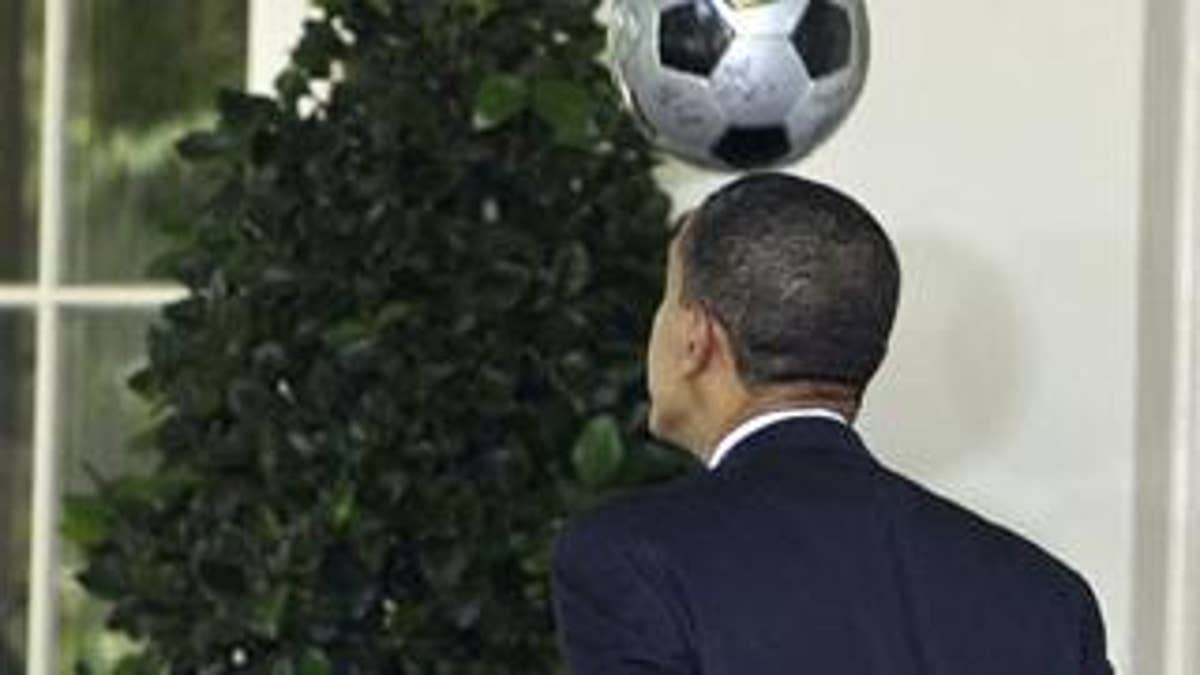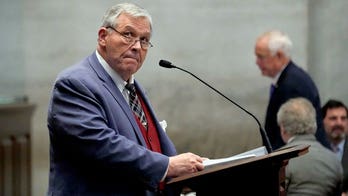
As President Obama seeks to balance the hopes for an economic recovery with the realities of a deteriorating job market, questions are emerging about how the two can be reconciled.
The economy has lost a net total of 6.5 million jobs since the recession began in December 2007 and Obama said Tuesday he expects the unemployment rate, which is at 9.5 percent, to continue climbing for the next several months.
About half of the 6.5 million jobs shed since the recession began, have come from manufacturing and construction. But economists note that construction will bounce back.
Yet the president proposed a $12 billion effort Tuesday to help community colleges train some of the 14.7 million unemployed Americans for "the jobs of the future."
"The hard truth is that some of the jobs that have been lost in the auto industry and elsewhere won't be coming back," he said in a speech at Macomb Community College in Warren, Mich. "They are the casualties of a changing economy. And that only underscores the importance of generating new businesses and industries to replace the ones we've lost, and of preparing our workers to fill jobs they create.
He added, "For even before this recession hit, we were faced with an economy that was simply not creating or sustaining enough new, well-paying jobs."
But some economists believe Obama is training people for failure.
"If you train people for the economy of the future and there are no consumers, you're training them for unemployment," said William Beach, an economist and director of the Center for Data Analysis at the Heritage Foundation.
Beach told FOXNews.com he has a problem with generations of politicians announcing programs for the economy of the future.
"I wonder what they know about the future of consumer tastes that I don't know," he said.
Other economists were equally doubtful of the president's proposal.
"I really think you can spend a lot of money on this wishy-washy training that really has no value to the employer and you're wasting taxpayer money," said Brian Bethune, chief U.S. financial economist at IHS Global Insight.
Bethune said the most effective way the government can train workers is to "create an environment where American businesses are optimistic about the future and they're preparing to hire workers and train them."
"It's a mistake to dump a lot of money into training programs when there is little prospect for these people to be reemployed," he said.
But other economists believe community colleges will be at the center of an economic recovery.
Bernard Baumohl, chief global economist at The Economic Outlook Group, said community colleges are "bursting at the seams right now" because so many unemployed Americans are going to back for degrees and to gain new skills.
"The economy in the next couple of years can generate new jobs," he said. "But it's going to take time."
Baumohl noted that jobless recoveries are par for the course because once the economy begins to improve, employers are reluctant to hire and the unemployed who had stopped looking for work and were excluded from the jobless rate start looking for work again.
"Then you have this surge in unemployment," he said, explaining that the rate doesn't level off until economic growth hits 3 or 4 percent.
Some industries have appeared immune to the recession. Since December 2007, 565,000 jobs have been created in health care, 185,000 in government, and 119,000 in education.
But some economists don't believe those numbers indicate that's where the future of the economy lies.
"I think to some extent, the growth in the health care industry represents the increasing demand that Americans are putting on the health care system," Bethune said. "Then you look at education, I think there's been some expansion due to rising enrollments, particularly at colleges and universities.
And government hiring "is going to hit the wall because the deficit is so serious," he said.




